SAML Single Sign-On into Joomla using Gluu Server
Contents
SAML Single Sign-On into Joomla using Gluu Server
miniOrange Joomla SAML SP SSO plugin helps you to integrate your Joomla site to Gluu Server using SAML 2.0 protocol. Our user-friendly plugin simplifies the process of setting up Single Sign-on (SSO) with Gluu Server in Joomla, ensuring a secure login experience. This enables users to access various Joomla sites effortlessly using their Gluu Server IDP credentials.
Our plugin is designed to be compatible with Joomla 3, 4 as well as 5 and works seamlessly with all SAML 2.0 compliant Identity Providers. For a detailed overview of the comprehensive features offered by the Joomla SAML SP plugin, please visit our page here. Below, we provide a step-by-step guide on configuring SAML SSO login between your Joomla site and Gluu Server, with Gluu Server serving as the Identity Provider (IDP) and Joomla as the Service Provider (SP).
What is SSO ?
In this context, the system responsible for authenticating users is referred to as the Identity Provider (IDP), while the system relying on the Identity Provider for authentication is known as the Service Provider (SP). When a user initiates a login attempt, the Service Provider sends a SAML request to the Identity Provider. Upon successful IDP authentication, SAML assertions containing user information are transmitted back to the Service Provider. Subsequently, the Service Provider receives the assertion, verifies it based on the Identity Provider configuration, and grants the user access to your Joomla website.
Pre-requisites: Download And Installation
Steps to Integrate Gluu Server Single Sign-On (SSO) with Joomla SAML SP
1. Setup Joomla SAML SP plugin
- Download the zip file for the miniOrange SAML SP plugin for Joomla.
- Login into your Joomla site’s Administrator console.
- From left toggle menu, click on System, then under Install section click on Extensions.
- Now click on Or Browse for file button to locate and install the plugin file downloaded earlier.
- Installation of plugin is successful. Now click on Get Started!
- Go to the Service Provider Metadata tab and scroll down to copy the SP-EntityID and the ACS URL.
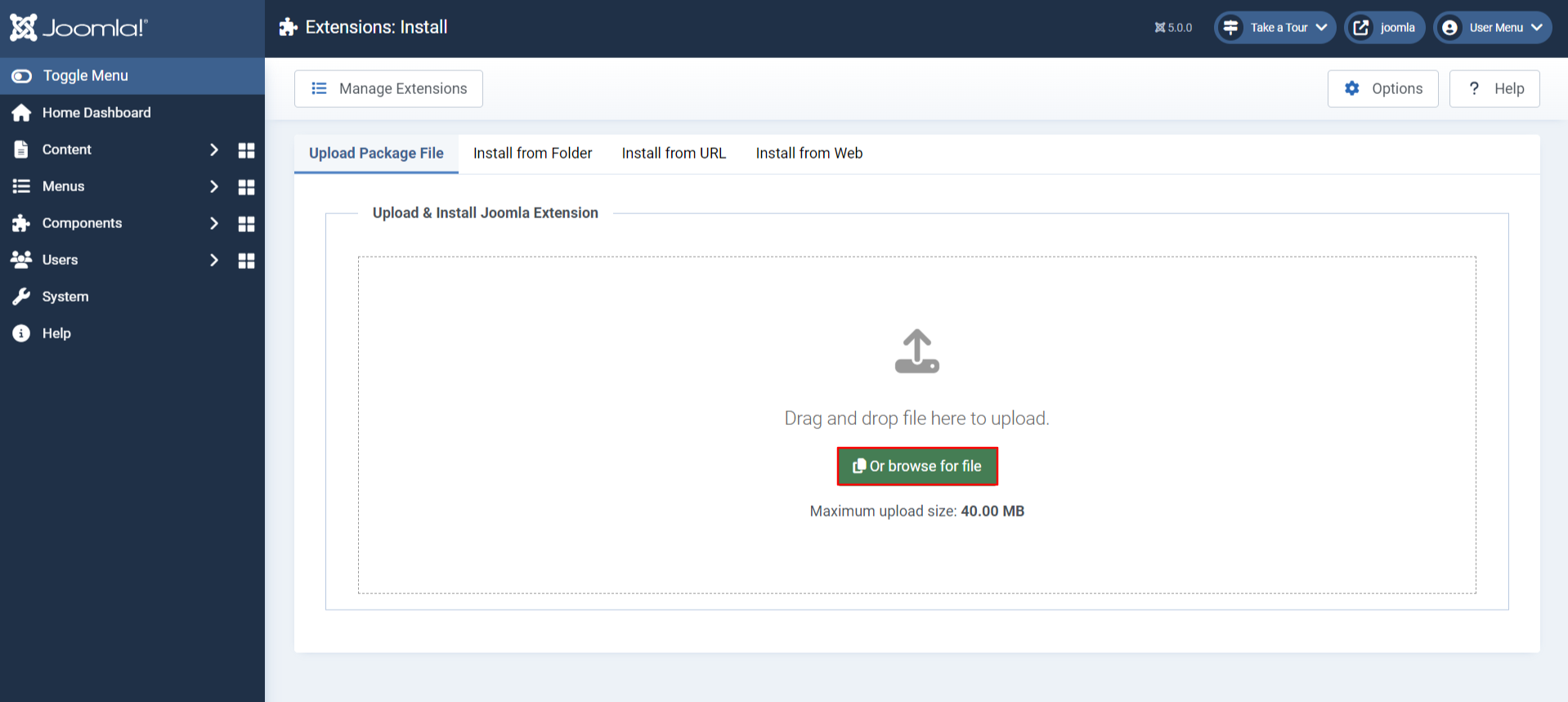
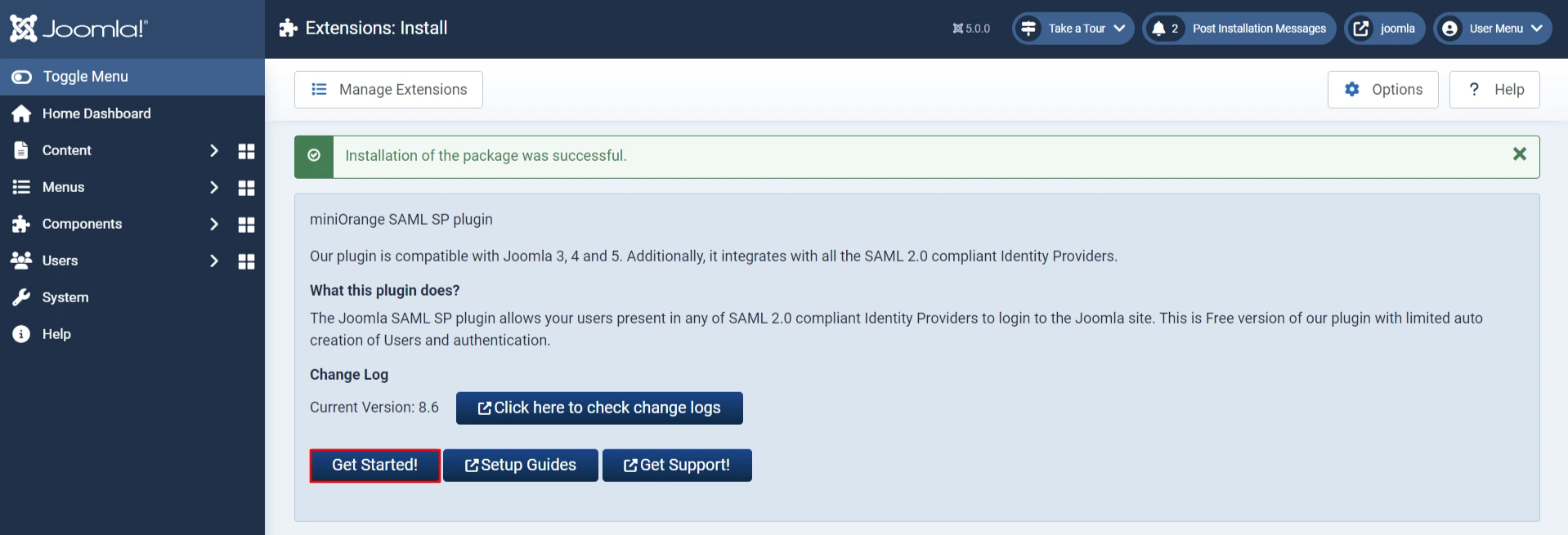
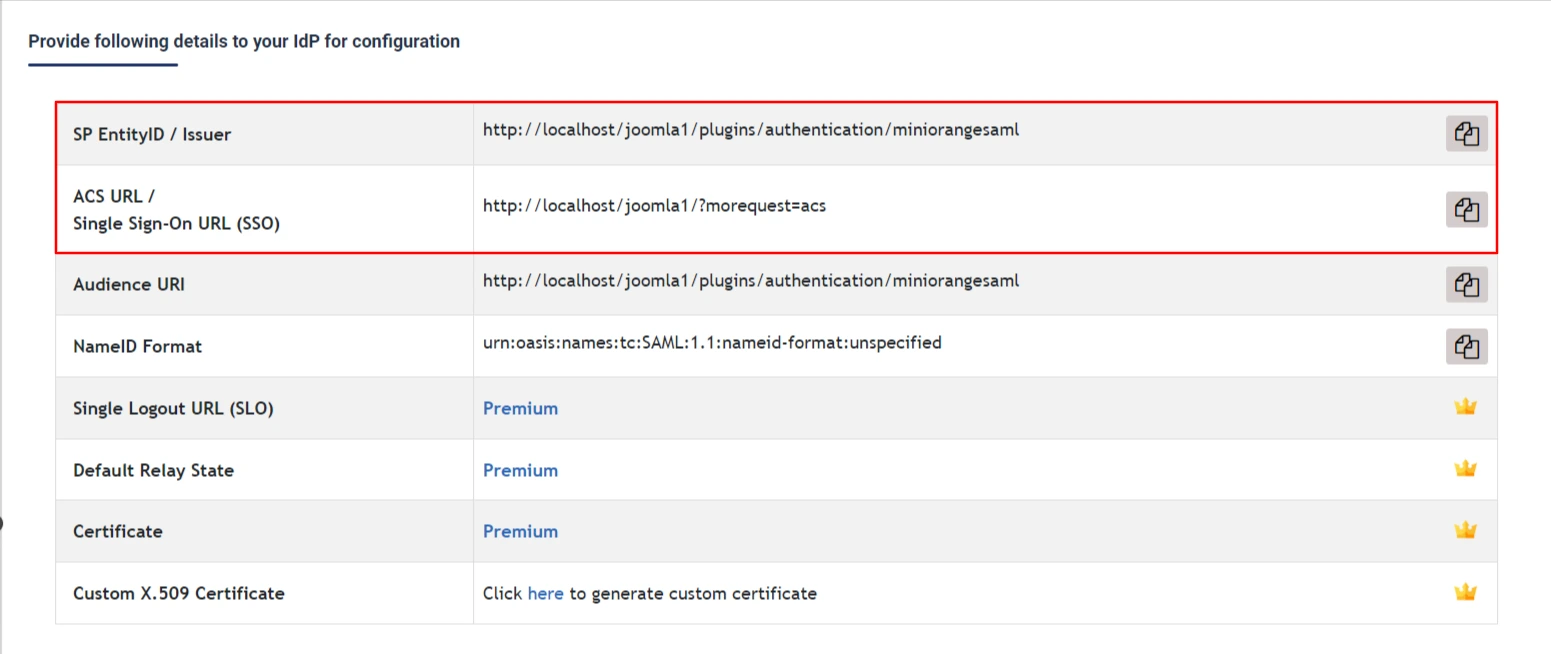
2. Configure Gluu Server as IdP
- Login to Gluu server Admin Console.
- From the navigation panel, click on SAMLAdd Trust Relationships.
- Configure the following in Trust Relationship Form:
- From the Service Provider Metadata tab in the plugin, download the Metadata XML File.
- Upload the Metadata file in SP Metadata File.
- Now tick the Configure Relying Party checkbox and click on Configure Relying Party link.
- You will be shown the Relying Party Configurations page.
- From Available Profile Configurations, select SAML2SSO and click on Add to add SAML2SSO to Selected Profile Configurations.
- In SAML 2 SSO Profile, configure the following:
- From Available NamedId Formats, select urn:oasis:names:tc:SAML:1.1:nameid-format:emailAddress and
urn:oasis:names:tc:SAML:1.1:nameid-format:unspecified and add it to the Selected NamedId Formats. - Click on Save button.
- From the Release Additional Attributes section on the right, add the attributes you want to send to the Service Provider.
- Click on Update button.
- Gluu's SAML IDP metadata can be found at https://HOSTNAME/ IDP/shibboleth. This will be required to configure the plugin in Service Provider.
- In Joomla SAML plugin, go to Service Provider Setup tab, then click on Upload IDP metadata.
- Enter Metadata URL (Copy from IDP app) and click on Fetch Metadata.
- Copy SAML Entity ID, SAML Single-Sign-On Endpoint URL and X.509 certificate from
Federation Metadata document and paste it in Idp Entity ID or Issuer, Single Sign-on URL, X.509 Certificate
fields respectively in the plugin.
- Click on Save button and then Test Configuration button.
- Once the test configuration is successful you will get the following window.
- Congratulations we have successfully configured Joomla SAML Service Provider.
- Attributes are user details that are stored in your Identity Provider.
- Attribute Mapping helps you to get user attributes from your Identity Provider (IDP) and map them to Joomla user attributes like firstname, lastname, address, phone etc.
- While auto registering the users in your Joomla site these attributes will automatically get mapped to your Joomla user details.
- Go to Attribute Mapping tab and fill in all the fields.
- You can check the Test Configuration Results under Service Provider Setup tab to get a better idea of which values to map here.
- Group/Role mapping helps you to assign specific roles to users of a certain group in your Identity Provider (IdP).
- While auto registering, the users are assigned roles based on the group they are mapped to.
- Go to Login Settings tab. You can add login Url to Perform SAML SSO in your Joomla site by following the steps below.
- There are multiple features availabe in this tab like Auto redirect the user to Identity Provider and Enable Backend Login for Super Users. To use these features, click on the respective checkboxes.
- Click on the Upgrade Plans tab to check out our complete list of features and various licensing plans. OR you can click here to check features and licensing plans.
- If you want to purchase any of the paid version of the plugin, you have to register/login with us in Account Setup tab. OR you can register/login here.
- In case, you are facing some issue or have any question in mind, you can reach out to us by sending us your query through the Support button in the plugin or by sending us a mail at joomlasupport@xecurify.com.
- What is Single Sign-On (SSO)
- Frequently Asked Questions (FAQs)
- How to configure SSO with Azure AD Identity Provider
- How to configure SSO with ADFS
- How to configure SSO with Salesforce
- How to configure SSO with Okta
- How to configure SSO with Google Apps
Note: In order to support SAML SSO, the Gluu Server must include the Shibboleth SAML IDP.
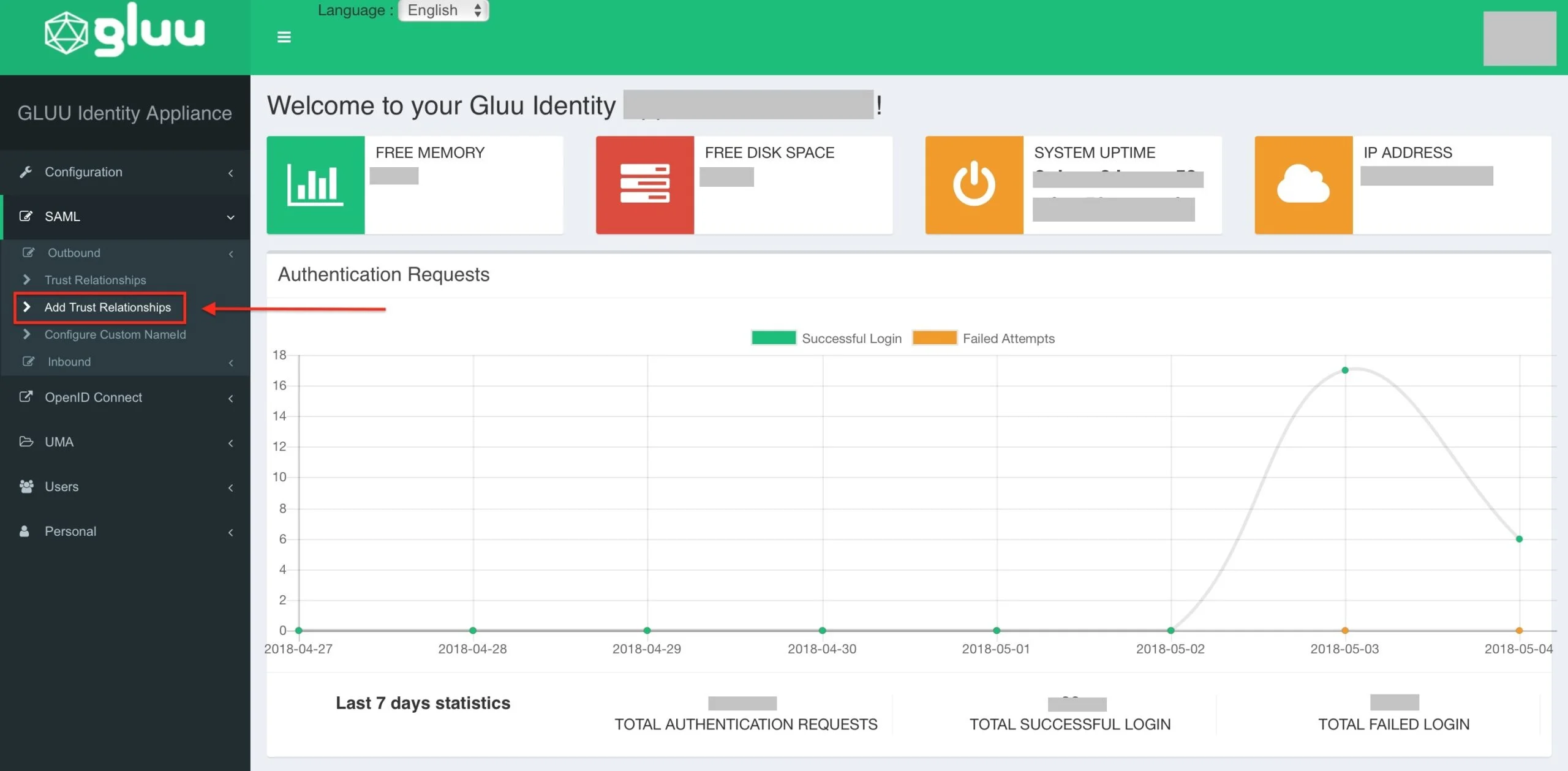
|
Display Name
Joomla SAML App (Enter any name for identifying the application)
|
|
Description
Provide a suitable description for you application
|
|
Entity Type
Single SP
|
|
Metadata Location
File
|
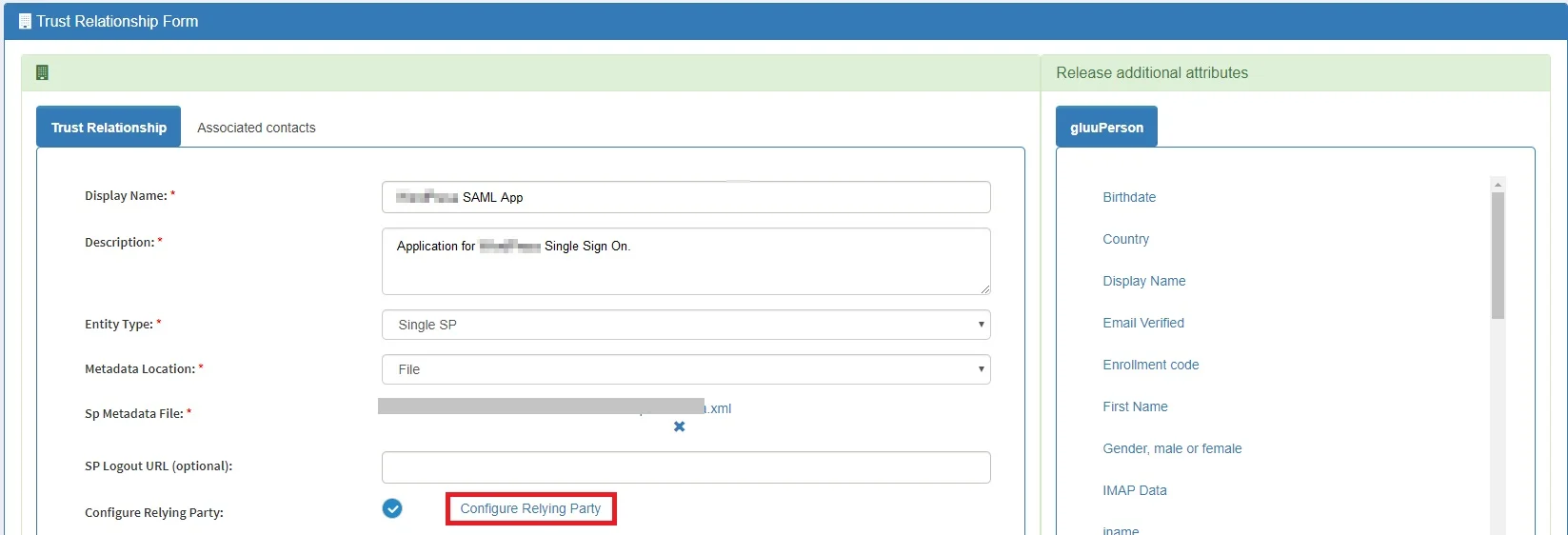

|
signAssertions
Never
|
|
signRequests
Conditional
|
|
encryptAssertions
Conditional
|
|
Support Unspecified NameId Format
None
|
|
defaultAuthenticationMethods
Tick the checkbox
|
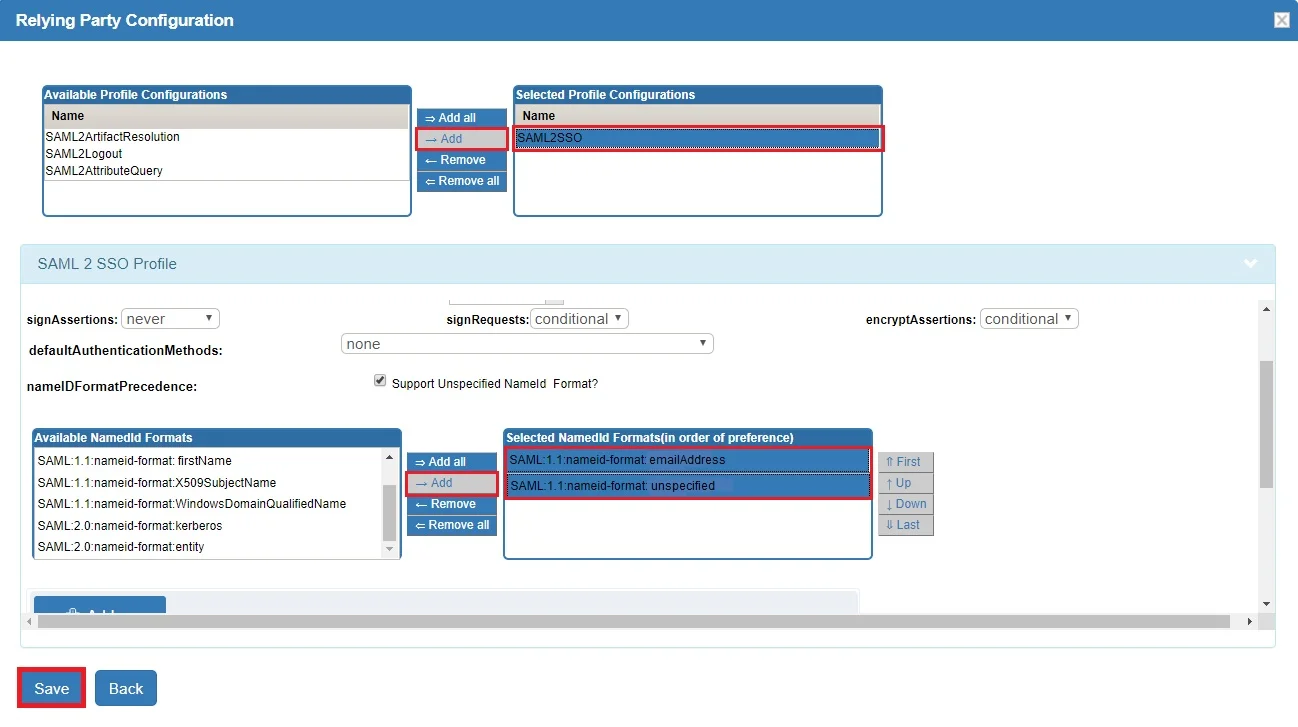
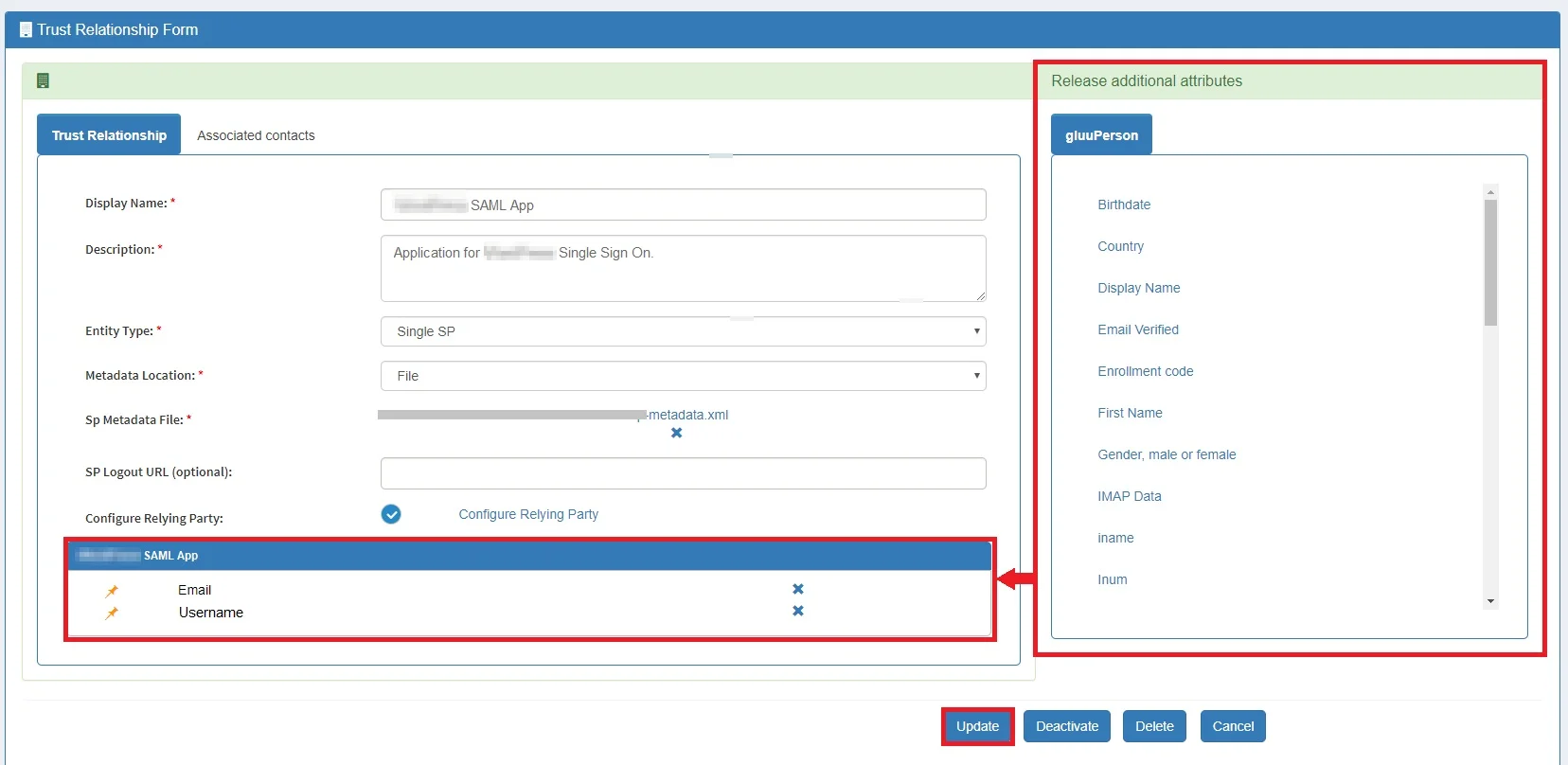
You have successfully configured Gluu Server as SAML IDP (Identity Provider) for achieving Gluu Server SSO login into your Joomla Site.
3. Configure Joomla as Service Provider
In Joomla SAML plugin, go to Service Provider Setup tab. There are three ways to configure the plugin:
 By Uploading Metadata File:
By Uploading Metadata File:
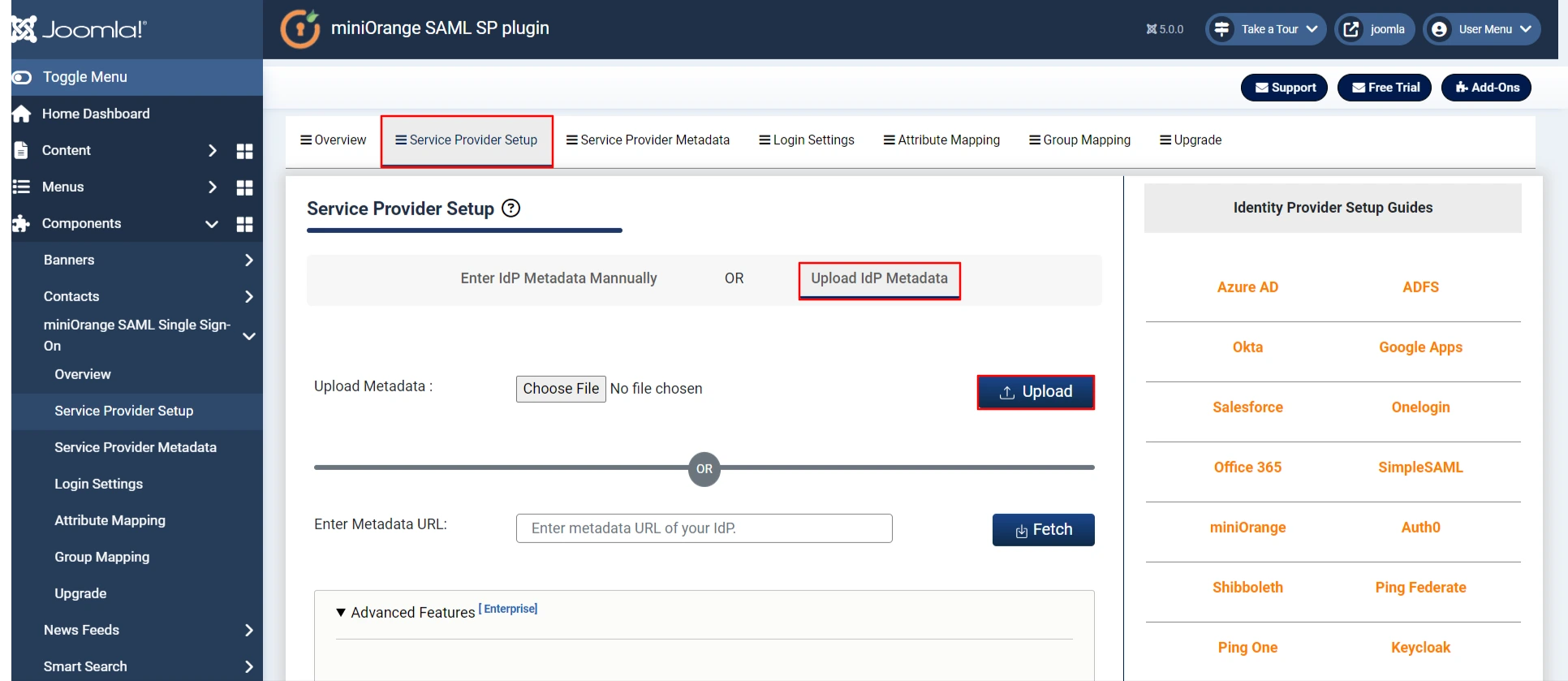
 By Metadata URL:
By Metadata URL:
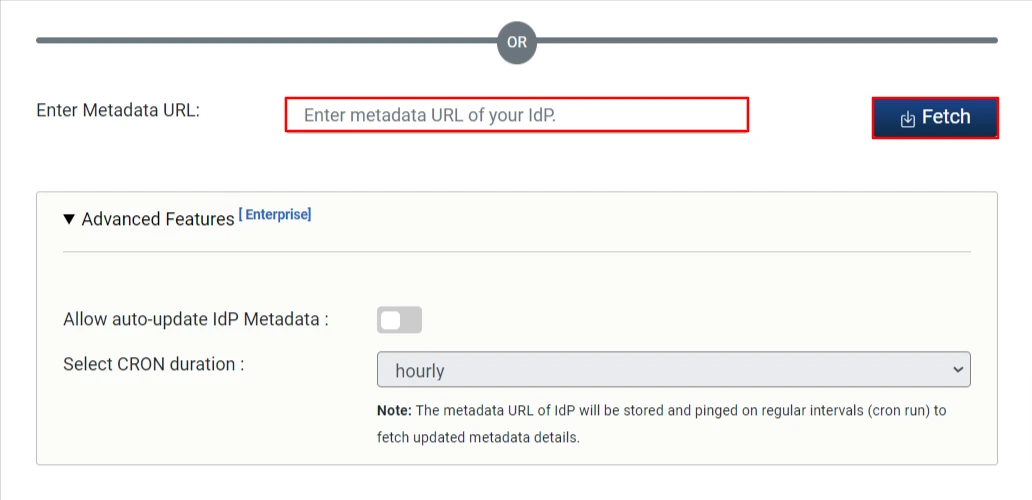
 Manual Configuration:
Manual Configuration:
|
IdP Entity ID or Issuer
SAML Entity ID in the Federation Metadata document
|
|
Single Sign-On URL
SAML Single-Sign-On Endpoint URL in the Federation Metadata document
|
|
X.509 Certificate Value
X.509 Certificate in the Federation Metadata document
|
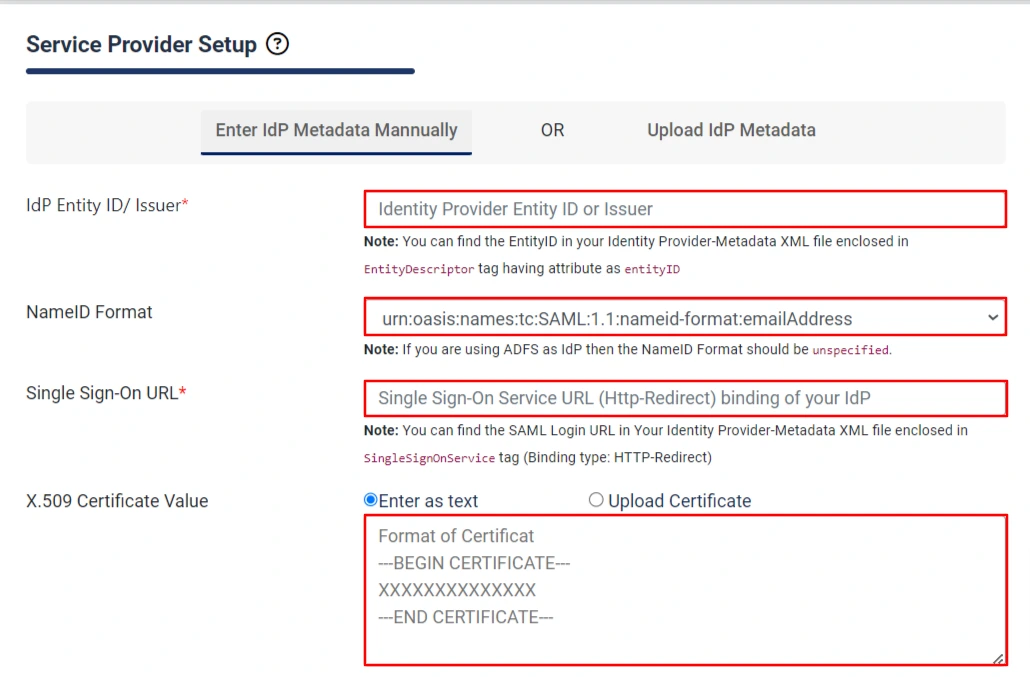
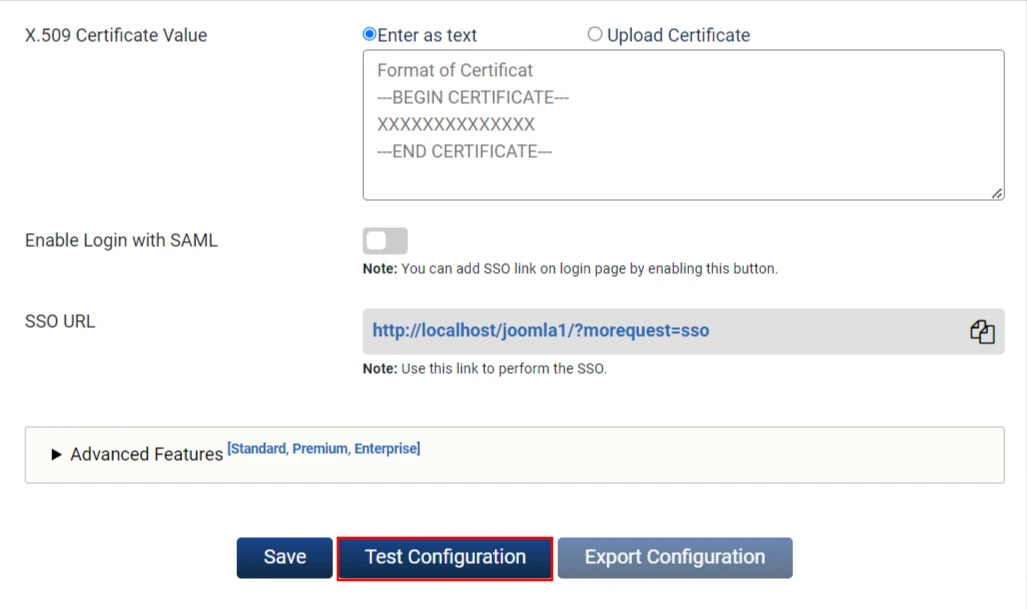
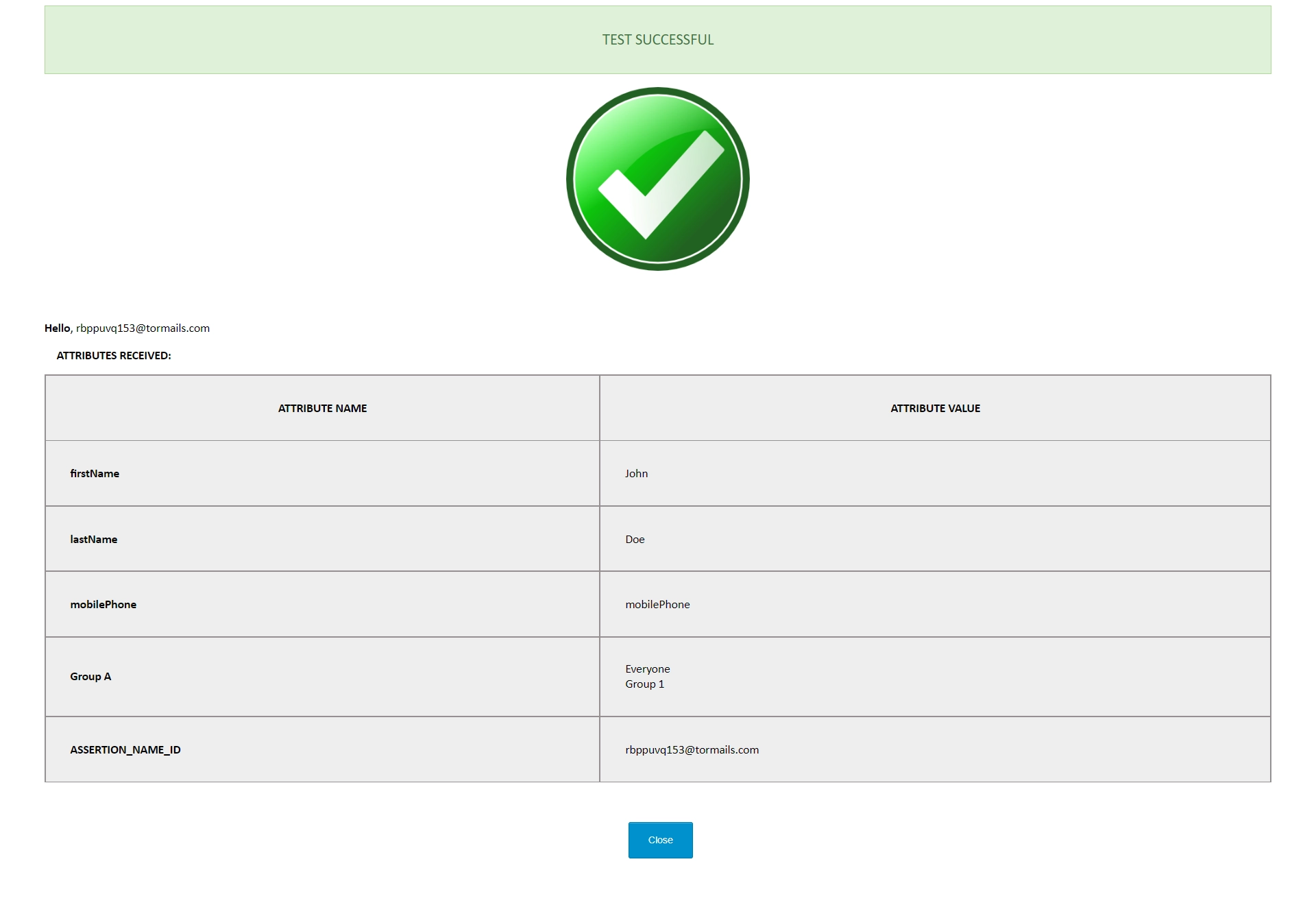
4. Attribute Mapping - This is Premium feature.
|
Username:
Name of the username attribute from IdP (Keep NameID by default)
|
|
Email:
Name of the email attribute from IdP (Keep NameID by default)
|
|
Name:
Name of the name attribute from IdP
|
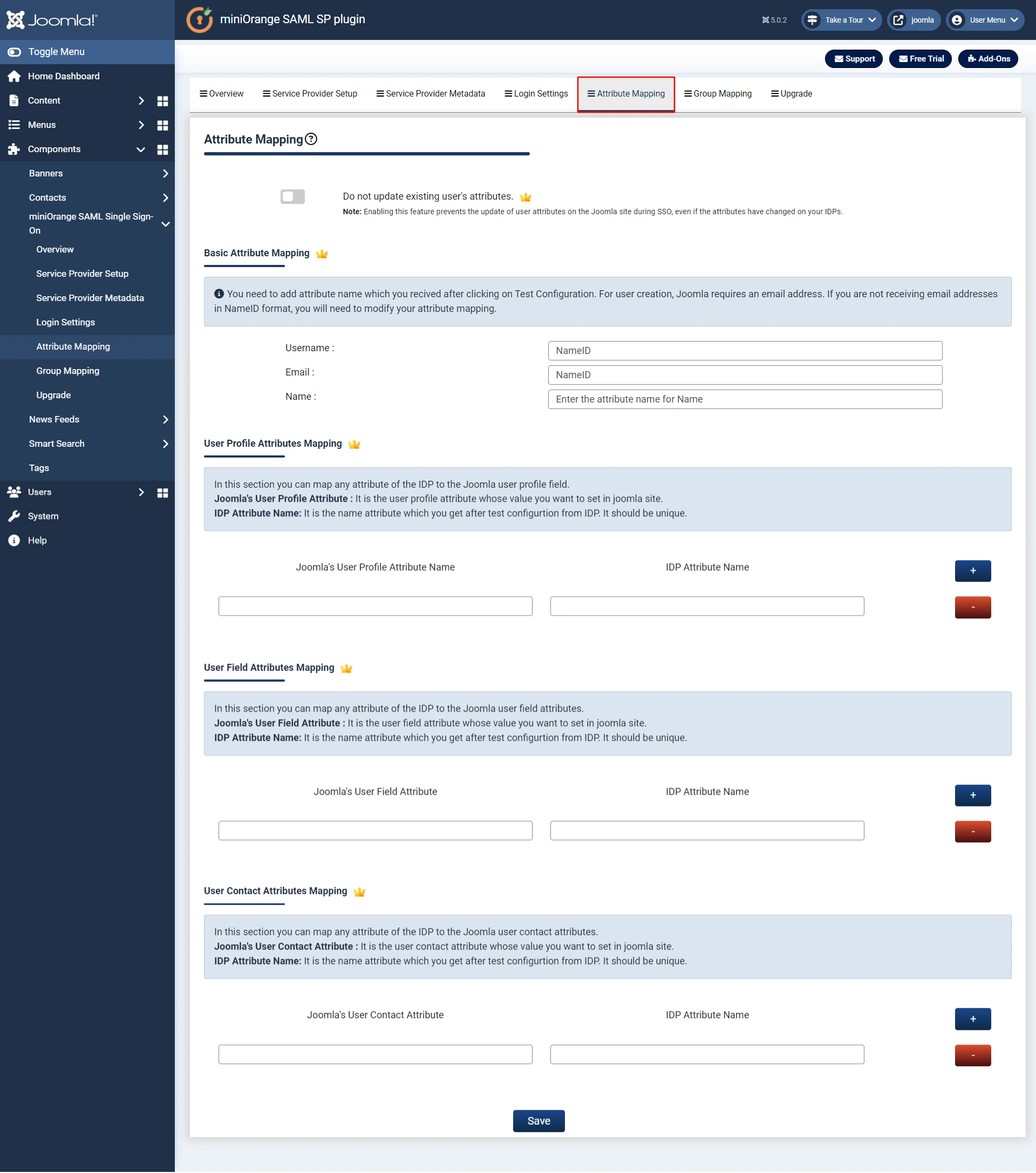
Step 5. Group Mapping - This is Premium feature.
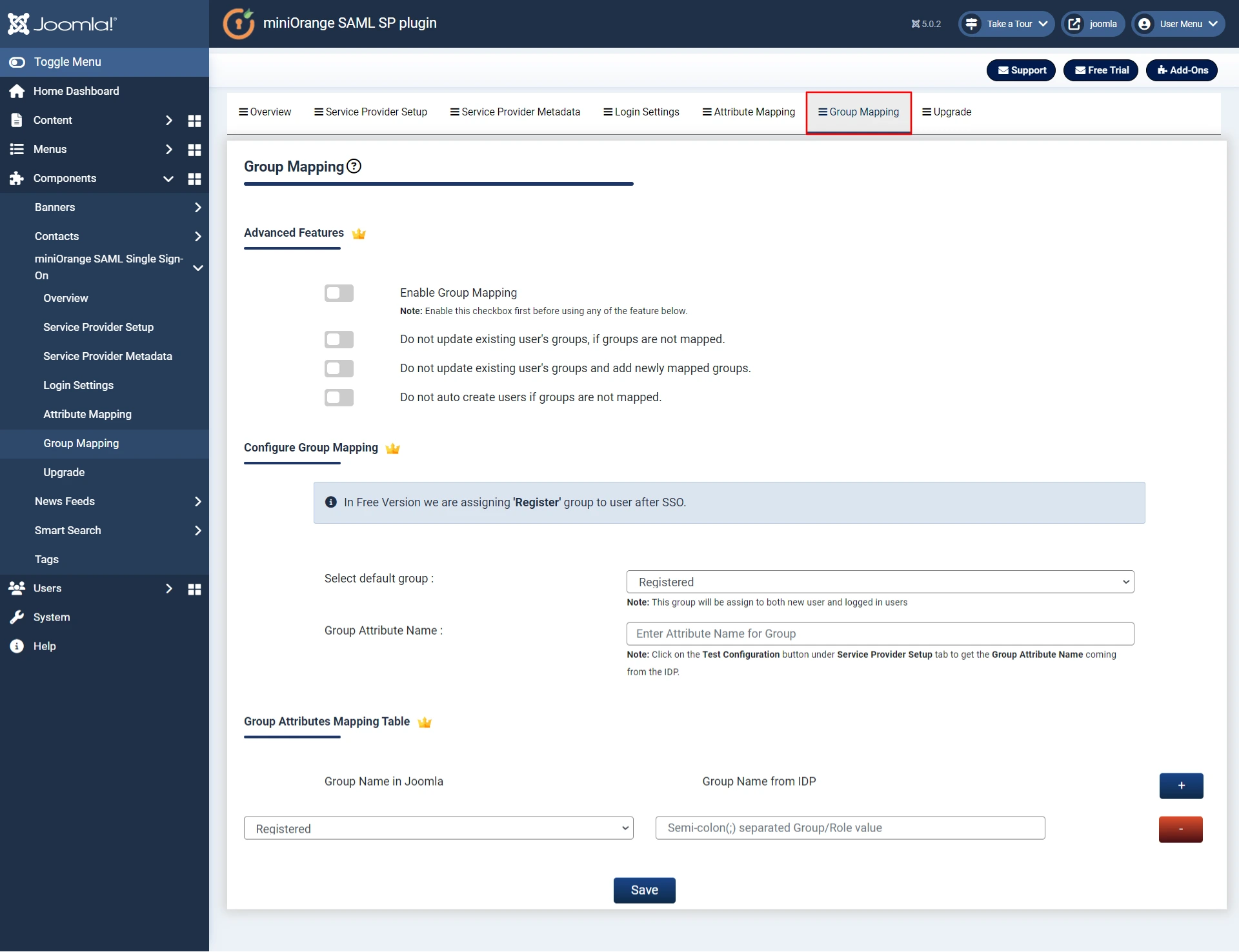
Step 6. Redirection & SSO Links.
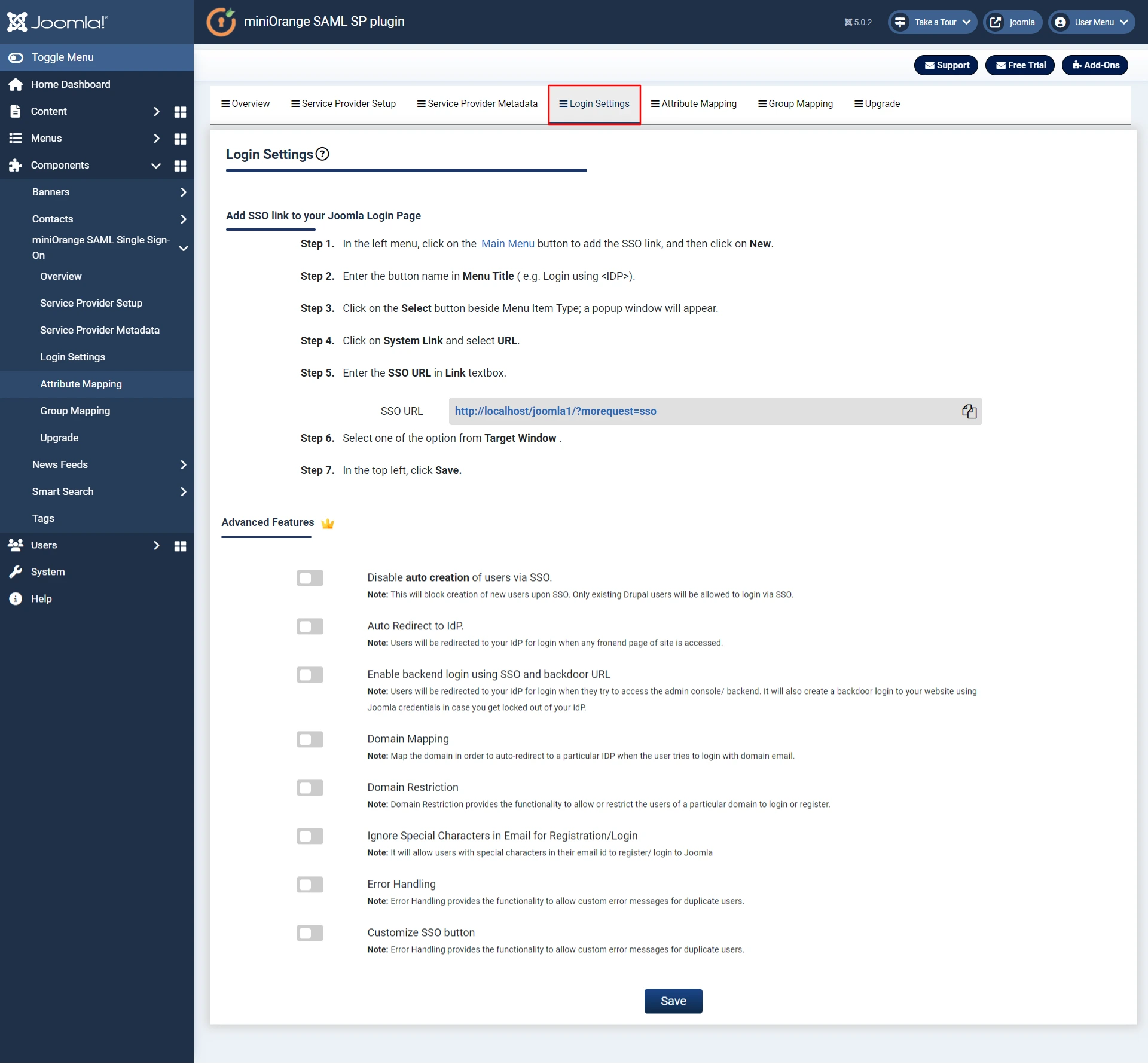


Additional Resources.
Business Trial
If you want Business Trial for FREE click Here
If you don't find what you are looking for, please contact us at joomlasupport@xecurify.com or call us at +1 978 658 9387.
Need Help? We are right here!

Thanks for your inquiry.
If you dont hear from us within 24 hours, please feel free to send a follow up email to info@xecurify.com
Cookie Preferences
Cookie Consent
This privacy statement applies to miniorange websites describing how we handle the personal information. When you visit any website, it may store or retrieve the information on your browser, mostly in the form of the cookies. This information might be about you, your preferences or your device and is mostly used to make the site work as you expect it to. The information does not directly identify you, but it can give you a more personalized web experience. Click on the category headings to check how we handle the cookies. For the privacy statement of our solutions you can refer to the privacy policy.
Strictly Necessary Cookies
Always Active
Necessary cookies help make a website fully usable by enabling the basic functions like site navigation, logging in, filling forms, etc. The cookies used for the functionality do not store any personal identifiable information. However, some parts of the website will not work properly without the cookies.
Performance Cookies
Always Active
These cookies only collect aggregated information about the traffic of the website including - visitors, sources, page clicks and views, etc. This allows us to know more about our most and least popular pages along with users' interaction on the actionable elements and hence letting us improve the performance of our website as well as our services.
